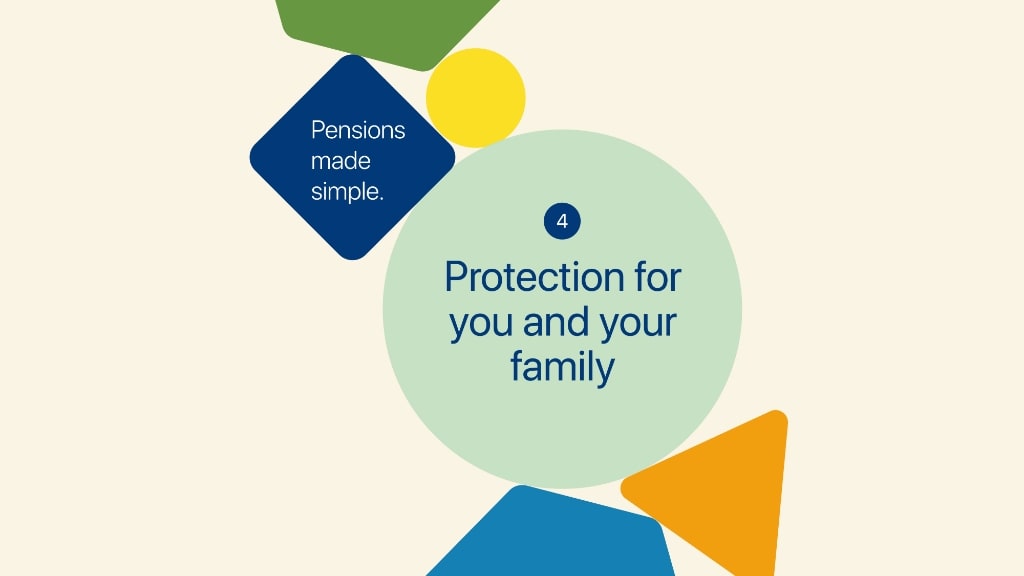Hi, my name is Hunter1! Was anyone in the similar situation with LGPS?
Hi There, I have permanent disability and was approved for Tier 1 - ill health retirement - from Local Government Pension Scheme. While I am unable to continue carrying out my job, I trust that I can continue working and carrying out less demanding jobs. I know that Tier 1 - can not be reassessed & that I can continue working. However, my question is - is "gainful" employment rule - applicable to Tier 1 at all. From what I could understood - it should be only applicable to Tier 3 (perhaps Tier2). Gainful employment means - no more than 30 hours per week for 12 months. I would like to get some strong legal interpretation on this, as I am not willing to risk any breaches Was anyone in the similar situation with LGPS? Thank you
Comments
-
Hey there @Hunter1 and welcome to the community!
I'm afraid we cannot give legal advise here, as we don't have that kind of focused training available. But I can suggest reaching out to ACAS, as they are the first port of call for all things relating to work law. Though our community members may have some other ideas or pointers. 😊
0 -
Thank you Will try contacting ACAS KR
1 -
From what I understand (I am on an LGPS IHP Tier 1)
Anybody can work for any other employer without it affecting your payment
ie) if you worked for Hertfordshire schools - you can get a job with any other county schools or anyone else
0 -
Thanks Wibbles, That is my understanding as well. But if you have a look at the scheme T&C - it talks about "gainful" employment - i.e. any work above 30h per week and 12 months consistency. LGPS advisor has not been very helpful, saying that the presumption is that Tier 1 is likely not to be able to secure "gainful" employment anyhow - which was not my question. All I wanted to know is the clear answer - can Tear 1 LGPS work full time - 37h per week over 12 months of employment & not be penalised. I could not see anything in the scheme forbidding it but????
1 -
Quick Google search brought this up from LGPS website….seems straight forward to me regarding various tiers.
Although my IHR was from the civil service and I was awarded the top tier highest pension I am guessing a lot of the same rules apply….Unless I am reading it wrong, getting a tier 1 pension does limit the amount of work you can undertake…..I would also suggest that in being awarded the tier 1 pension the pension provider has come to the conclusion from your testimony and medical evidence that you are unfit for current role or work but also unlikely for any work….it was explained to me that the consequences of working would have a huge impact on my future pension if I did not declare it.
Are you sure you have your tiers the right way around?Ill health retirement
The LGPS protects you by paying your pension straight away if you are too ill to work at any age.
In this section
- Overview
- Qualifying for ill health benefits
- Ill health tiers
- Assumed Pensionable Pay
- Ill health retirement and paying extra
- Ill health retirement – special cases
Overview
If you have to leave work because of illness, your LGPS benefits may be paid straight away. Ill health benefits can be paid at any age. Your pension would not be reduced for early payment. Your pension may be enhanced to make up for your early retirement.
This section does not apply to you if you have a deferred pension and you are too ill to work. See Taking your deferred pension if this applies to you.
Protection for you and your family 01:31
How the LGPS looks after you and your loved ones by providing protection if you have to retire due to ill health and a range of death benefits.
Download transcriptfor “Protection for you and your family”
Visit the Videos page to watch more of our ‘Pensions made simple’ videos, including Welsh language versions.
Back to topBack to content menu
Qualifying for ill health benefits
You must have met the two year vesting period in the LGPS to qualify for ill health benefits. Your employer must be satisfied that:
- you are permanently unable to do your job until your Normal Pension Age, and
- you are not immediately capable of undertaking gainful employment.
Your employer must get the opinion of an independent occupational health physician appointed by them before it makes its decision.
Your Normal Pension Age in the LGPS is linked to your State Pension age. You can Check your State Pension age- This link opens in a new browser window on the Government’s website.
Gainful employment means paid employment for at least 30 hours a week for a period of at least a year.
Ill health benefits can be paid to you at any age. Your benefits will not be reduced because they are being paid early. In some cases, your pension will be increased to make up for your early retirement. The level of benefits depends on how likely you are to be capable of gainful employment after you leave.
Back to topBack to content menu
Ill health tiers
What you are paid depends on which benefit tier you qualify for. Your employer decides on the appropriate tier. The benefits payable under the different tiers and the qualifying conditions are set out below.
Tier 1
You qualify for Tier 1 if you are unlikely to be capable of gainful employment before your Normal Pension Age. The ill health benefits you would receive are:
- the pension you have already built up on your date of leaving
- no reduction for early payment
- plus the pension you would have built up in the main section of the LGPS from your leaving date to your Normal Pension Age.
A Tier 1 pension is paid for the rest of your life. The increase to your pension under Tier 1 is based on your Assumed Pensionable Pay. You can find out more about Assumed Pensionable Pay in the next section.
Tier 2
You qualify for Tier 2 if you are unlikely to be capable of gainful employment within three years of leaving, but you are likely to be capable of gainful employment before your Normal Pension Age. The ill health benefits you would receive are:
- the pension you have already built up on your date of leaving
- no reduction for early payment
- plus 25% of the pension you would have built up in the main section of the LGPS from your leaving date to your Normal Pension Age.
A Tier 2 pension is paid for the rest of your life. The increase to your pension under Tier 2 is based on your Assumed Pensionable Pay. You can find out more about Assumed Pensionable Pay in the next section.
Tier 3
You qualify for Tier 3 if you are likely to be capable of gainful employment within three years of leaving, or before your Normal Pension Age, if this is earlier. You would receive the pension you have built up on your date of leaving. it would not be reduced for early payment. Your Tier 3 pension is paid temporarily. It will stop when the first of these events happens:
- your Tier 3 pension has been paid for three years
- you start gainful employment
- you become capable of gainful employment.
If you reach your Normal Pension Age while your Tier 3 pension is being paid to you, it will not stop. Your former employer must assess whether you are capable of undertaking gainful employment.
After your Tier 3 pension is stopped, it will normally become payable again from your Normal Pension Age. You may take it earlier. Your pension fund will provide you with information about your options when your Tier 3 pension stops.
Back to topBack to content menu
Assumed Pensionable Pay
Assumed Pensionable Pay is used to work out the increase to your pension when you are awarded Tier 1 or 2 ill health benefits. Assumed Pensionable Pay is the average pay you receive in the period before you leave due to ill health retirement. It is based on three months’ pay if you are paid monthly or 12 weeks’ pay if you are not paid monthly.
There are sometimes adjustments to the calculation of Assumed Pensionable Pay:
- If your pensionable pay was reduced because you were away from work, your employer will generally ignore the reduction when it works out your Assumed Pensionable Pay. This will be the case if you are absent because of sickness or injury, authorised unpaid leave or trade dispute.
- If the pay you received in the period leading up to your leaving date is lower than the pay you would normally receive, your employer can use a higher pay to work out your Assumed Pensionable Pay. Your employer must have regard to the pensionable pay you received in the last 12 months when they do this.
- You may have been working reduced hours in the period leading up to your leaving date. An independent medical practitioner must certify whether you were working reduced hours because of the condition that led to your ill health retirement. If you did reduce your working hours because of that condition, your employer will work out your Assumed Pensionable Pay based on the pay you would have received if your hours had not been reduced.
Back to topBack to content menu
Ill health retirement and paying extra
Special rules can apply if you are paying extra pension contributions in the LGPS and you retire with an ill health pension. You can find out more in this section.
Additional Voluntary Contributions (AVCs)
If you are paying Additional Voluntary Contributions (AVCs) in the LGPS and you retire with an ill health pension, there are no special rules. You will have the same choices as you would have had if you took your pension in normal health. You can find out more about your options in the Taking your pension and paying extra section.
Additional Pension Contributions
You may have bought additional pension by paying Additional Pension Contributions (APCs) or Shared Cost APCs. When you take an ill health pension, it will include the extra pension that you have paid for by lump sum or regular payments. The extra pension will not be reduced for early payment. If you qualify for a Tier 1 or 2 ill health pension, you will be credited with all the extra pension that you set out to buy, even if you have not completed full payment for it.
You can choose to swap some of the extra pension for a cash lump sum in the same way that you can exchange your main LGPS pension.
Additional Regular Contributions (ARCs)
When you take an ill health pension, it will include the extra pension that you have bought by paying Additional Regular Contributions. The extra pension will not be reduced for early payment. If you qualify for a Tier 1 or 2 ill health pension, you will be credited with all the extra pension that you set out to buy even if you have not completed full payment for it.
You can choose to swap some of the extra pension for a cash lump sum in the same way that you can exchange your main LGPS pension.
Buying extra years in the LGPS (added years)
If you are paying for extra years when you take an ill health pension, you will normally be credited with the whole extra period of membership that you set out to buy. This will be the case even if you have not completed full payment for it.
The extra membership is included in your membership built up before 1 April 2014. The extra benefits you will get are based on your final pay when you leave the Scheme. See the section on How your pension is worked out for more information.
Back to topBack to content menu
Ill health retirement – special cases
In some cases, your ill health pension will be worked out differently. You can find out more about the differences in this section. The rules covering these special cases can be very complicated. Your pension fund will let you know if you are affected by them.
- If you were awarded an ill health pension before 1 April 2008 or if you were awarded a Tier 1 pension after 31 March 2008, then your pension will not be increased if you retire due to ill health again.
- If you were awarded a Tier 2 pension after 1 April 2008, then any increase to your pension will be restricted if you retire due to ill health again. If you are awarded a Tier 1 or 2 ill health pension, then the increase to your pension will be based on a maximum of 75% of the number of years from your original ill health retirement to your Normal Pension Age, less the number of years of active membership since the first ill health retirement.
- You may qualify for additional protection apply if you:
- were paying into the LGPS on 31 March 2008
- were age 45 or over on that date, and
- have been in continuous membership of the LGPS.
If you qualify for a Tier 1 or 2 ill health pension, your pension fund will check whether the increase to your pension is at least as good as it would have been under the LGPS rules in force before 1 April 2008. If it is not, your pension will be increased further. This protection will not apply to you if you took flexible retirement before your ill health retirement.
0
Categories
- All Categories
- 15.7K Start here and say hello!
- 7.4K Coffee lounge
- 101 Games den
- 1.7K People power
- 149 Announcements and information
- 24.7K Talk about life
- 6K Everyday life
- 471 Current affairs
- 2.5K Families and carers
- 888 Education and skills
- 1.9K Work
- 558 Money and bills
- 3.7K Housing and independent living
- 1.1K Transport and travel
- 631 Relationships
- 1.5K Mental health and wellbeing
- 2.5K Talk about your impairment
- 873 Rare, invisible, and undiagnosed conditions
- 935 Neurological impairments and pain
- 2.2K Cerebral Palsy Network
- 1.2K Autism and neurodiversity
- 40.8K Talk about your benefits
- 6.1K Employment and Support Allowance (ESA)
- 20K PIP, DLA, ADP and AA
- 8.9K Universal Credit (UC)
- 5.9K Benefits and income


